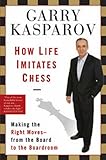Glimpsing the real Bobby Fischer
 When I was a kid, one of my heroes was the great American chess master Bobby Fischer, who in 1972 defeated Soviet Boris Spassky to become the world champion. (Apparently the contest broadcast brought record ratings for PBS). Then he lost the championship by default in 1975.
When I was a kid, one of my heroes was the great American chess master Bobby Fischer, who in 1972 defeated Soviet Boris Spassky to become the world champion. (Apparently the contest broadcast brought record ratings for PBS). Then he lost the championship by default in 1975.
Born 66 years ago this week, Fischer died in January 2008, living in exile in Iceland. After his rapid rise to success, the former chess prodigy spent his life wrestling (largely without success) with his personal demons.
Chess master (and college professor) Christopher Chabris has an interesting retrospective this morning in the WSJ, based on a Fischer symposium held over the weekend in Greenwich Village. One presentation — based on a FOIA request into Fischer’s background — shed light on his torment:
Journalists Clea Benson and Peter Nicholas told how they used the Freedom of Information Act to access the FBI files on Fischer's mother, Regina, a secular Jew of Polish ancestry who was suspected of being a communist. They discovered that Paul Nemenyi, a brilliant but eccentric physicist, had an affair with Regina and was very likely Bobby's biological father. He died when Bobby was 9, but until then he had sporadic contact with his son, who did not know until later who he really was. Nemenyi came from a family of prominent Hungarian Jews that was largely wiped out during World War II.I suppose if young baseball fans were crushed to learn of their heroes’ steroid use, I had a parallel reaction to the wacky Fischer of later life. (Allowing a commie chess player to win by default? Just suck it up, man!) Yes, he did with the 1992 rematch, but overall his life after 1972 seemed such a waste for such a brilliant man. (And I’m being charitable about his paranoid rantings on politics and other topics).
From the discussions at the symposium, a portrait began to emerge of Fischer as a chess genius who was at the center of his own world and saw everyone else as being in orbit around him. When actions were taken against his interests — by individuals, corporations, or governments — he could not help but see them as personal attacks, and he concluded that the attacks came not from individuals with particular reasons and motives, but from the larger groups or organizations those individuals were part of. In his view, the Americans, the Russians and the Jews were collectively responsible for all of his travails.
But having learned about his genetics and loss of a parent, I’m far more sympathetic. It’s hard enough for a strong-willed boy to grow into a responsible adult under even normal circumstances. With a tendency towards eccentricity and an absent father — not to mention the adulation of outsiders while his star was on the rise — it would be as hard for Fischer to stay on the rails as it would be for a poor fatherless athlete enjoying NFL or NBA riches.
 It was a tribute to Fischer’s determination that he held it together until his September 1972 victory over Spassky. One of the most insightful professional testimonials comes in two books from former world champion Gary Kasparov, another Jewish chess prodigy who since his retirement has fought tirelessly for political freedom in post-Cold War Russia.
It was a tribute to Fischer’s determination that he held it together until his September 1972 victory over Spassky. One of the most insightful professional testimonials comes in two books from former world champion Gary Kasparov, another Jewish chess prodigy who since his retirement has fought tirelessly for political freedom in post-Cold War Russia.Apparently there is another movie being produced on the Fischer saga — with the inevitable liberties on the truth. I’ll stick with the BBC mini-documentary on the 1972 match, available on Google video.

![[feed]](http://photos1.blogger.com/x/blogger2/6971/993546936938810/1600/z/962294/gse_multipart3851.gif)

No comments:
Post a Comment